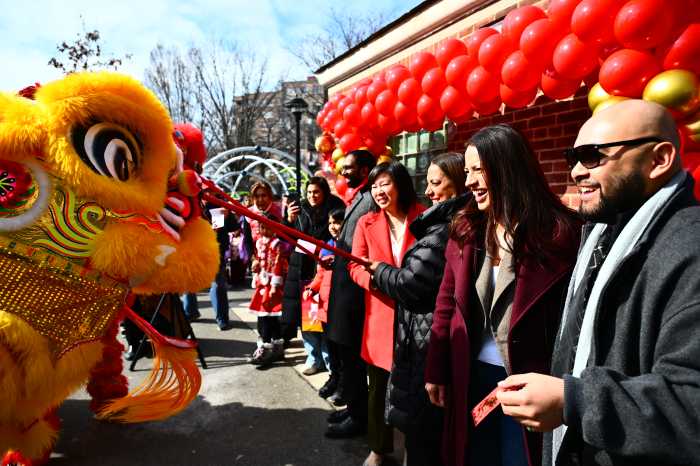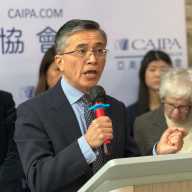Many Reasons To Stay In Their Job
(AP) At 91, Maxine Bennett still works six days a week at her jewelry store: keeping the books, helping customers and occasionally going on buying trips.
Retirement’s not for her. “At 65 I was just really getting started,” Bennett said.
She is part of a growing number of people who continue working way past the usual retirement age. The reasons are as unique as the individuals themselves. There are those who can’t afford to retire, but there also are those who made mid-life career switches and want to see their new vocation through, and others, like Bennett, who simply enjoy going into work each day.
“Mother lives because she works. If she went home, didn’t do anything, there’s not enough crosswords for her to keep busy all day long,” said her daughter, Beverly Bennett. “Basically, this may be working, but this is really mother’s living.”
The idea of a set retirement age at 65 is changing as companies drop pensions, and people are living longer and staying healthier, said Jean Setzfand, AARP’s vice president of financial security. “Our belief here is we want people to work as long as they desire to do so,” Setzfand said.
U.S. Department of Labor statistics show that the number of people 75 and older who work full or parttime has risen from about 487,000, or 4.2 percent, in 1990, to 1.2 million, or 6.9 percent, last year.
Beverly Bennett, herself 70, also has no plans to retire from the family store, where she, too, works six days a week.
“When you’re at work and you have your head down and you’re working very, very hard, you don’t know you’re 70 years old,” Beverly Bennett said. “If you don’t have great outside interests, if you’re not busy with other people, you need to be busy at work.”
What’s important is staying involved, whether that means working or something else, said Jay Magaziner, a gerontologist who chairs the department of epidemiology and public health at the University of Maryland School of Medicine.
“For some people, staying engaged and doing meaningful activities can be accomplished through leisure and retirement activities,” Magaziner said.
For those who want to work, being self-employed or having knowledge valued by an employer can help ensure that happens, said Sara Rix, senior strategic policy adviser in the AARP’s Public Policy Institute.
Like the Bennetts, 82-year-old Darrell Reneker can’t imagine life without working. The distinguished professor of polymer science at The University of Akron still works full time teaching and conducting research.
“I get paid, but my lifestyle isn’t so dependent on that. What else would I do that’s more interesting? And the answer is I can’t think of anything,” said Reneker, who starts every day with an early morning run.
Raised in the small West Texas town of Rankin, Maxine Bennett left business college after getting hired as a bookkeeper. While her two children grew up, she worked a variety of jobs, from switchboard operator to bookkeeper to butcher.
“I can’t remember not working and not enjoying it,” she said.
During the 1960s, her husband’s job as a drilling superintendent for an oil company took them to Iraq, Kuwait, Mozambique, Tunisia, Libya and Singapore. At most stops, she found jobs as well. When he died of a heart attack in Saudi Arabia in 1973, at age 54, “life as I had known it ended,” she said.
Returning to Texas after 13 years overseas, she found a purpose when her son, Scotty, came up with an idea: buy Native American jewelry and sell it overseas. That didn’t exactly take off, but from that a business was born. By the mid-1970s, the Bennetts opened Castle Gap Jewelry in Dallas.
Maxine Bennett says she knows many people who retire are “as happy as they can be.” But for her, “When you find something that you enjoy and you don’t have to do it _ I guess that it makes it all the more interesting.”
John Adams, 79, who took over his father’s Dallas paint store in 1977, said his work is fulfilling because he’s able to help people.
“Somebody comes in with a problem, you help them with it,” said Adams, who sells paint and frames pictures at Adams Paint Center.
“They’re not just my customers, they’re my friends,” he said. Adams’ previous jobs included supervisor at a baking company and running a restaurant.
The Rev. John Naus, the 87-yearold chaplain of Marquette University’s Alumni Memorial Union, said he advises students to find a career that lets them make a difference in people’s lives. Ordained as a priest in 1955, Naus has a doctorate in philosophy, taught high school, and was a philosophy professor at St. Louis University before going to Marquette in the early 1960s, where he has held posts including director of spiritual welfare and assistant to the university president.
“I would not be alive and I would not be doing what I’m doing without the friends that I have,” said Naus, who used a cane after contracting polio as a young adult and has used a wheelchair since a 2004 stroke.
He doesn’t consider what he does a job: “I consider it a joy,” he said.



































